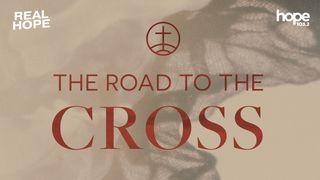Living His Storyنموونە

Jesus was in the Transformation Business
Our culture today is fascinated by the story of individuals. It is sometimes the focus on the human story that provides a gateway to understanding the larger and more complex narrative. In the book of Acts the first disciples witnessed to the facts of the resurrection but they were not afraid to put their personal story to the complex narrative of the gospel. They preached powerfully and persuasively about the Scriptures, but they also shared their experience of personal encounter with the risen Jesus. When standing before the Sanhedrin, accused of disturbing the peace with their proclamation of the risen Jesus and the miraculous healings, Peter and John are not afraid to make it personal: ‘we cannot keep from speaking about what we have seen and heard’ (Acts 4.20). At this point Peter and John do not seek to offer a rational defence of the resurrection but instead are compelled to offer their own experience, what they have seen with their eyes and heard with their ears.
Everyday witness involves sharing our own personal story with people. Even in our postmodern culture where there is suspicion of metanarratives that seek to provide overarching answers to all people and places, little stories have a powerful voice; they can connect and provide a way into the bigger story. Our personal experience often authenticates and earths the gospel message for people. Our story can be a particularly effective way of connecting with people in a culture that values experience more highly than truth. When we share our story, we do not position ourselves as authorities on the faith, but as learners, experiencers, and as those who are on a journey. John Drane expresses it like this: When we preach sermons, or hand on ready-made summaries of Christian belief and theology, we inevitably present ourselves as experts. Doing it that way, it is all but impossible to avoid giving the impression that we are people who have it all together, people with no questions. But when we tell stories, we reveal ourselves as weak and vulnerable – spiritual pilgrims with whom others can identify. As followers of Jesus, we all have our own unique story to tell.
We all have our own story of the way that God has worked in our life. Like our thumbprint, which is unique to us so is the story of our faith journey. Sometimes we can feel intimidated if our story isn’t the dramatic transformation testimony that we are used to hearing on the stage of the Christian conference. The reality is that most of us are pretty ordinary people and so our testimony is just what is needed. Within every ordinary story there will be the trace of the extraordinary. Learning to be ourselves in witness can be a huge step forward. We do not need to pretend to be someone else. We are not claiming to have all the answers, but we are instead simply offering that we have found Jesus to be true, real, forgiving and transformative in our lives. When we share our story with someone, we aren’t claiming definitive proof, but we are saying that we have found something extraordinary and compelling that we want to share with others. Sometimes we can be tempted to pretend that following Jesus will make everything perfect in someone’s life. Be honest about the struggles as well as the high points. When we share our story truthfully in this way, we make ourselves vulnerable and therefore more approachable. Evangelism isn’t just about sharing our story. It’s also about the story of the person sitting before us. And it’s also about God’s story and how he longs for people to enter into his story and make it theirs too.
Questions for Reflection
1. How can you share your story with others? How can you follow in the footsteps of the man in Mark 5 and ‘stay and tell of what the Lord has done’?
2. How would you express to someone the difference that Jesus makes in your life? What is it about Jesus that particularly draws you to him?
3. What is it about being a Christian that particularly makes a difference for you?
دەربارەی ئەم پلانە

Change the way you think about evangelism, and discover how we can live Jesus’ story in our own lives simply by being the people God made us and allowing people to be drawn to him through our natural gifts. Drawn from Living His Story, the Archbishop of Canterbury's Lent Book for 2021, this 7-day plan will fill you with confidence in sharing God’s love with the people around you.
More









